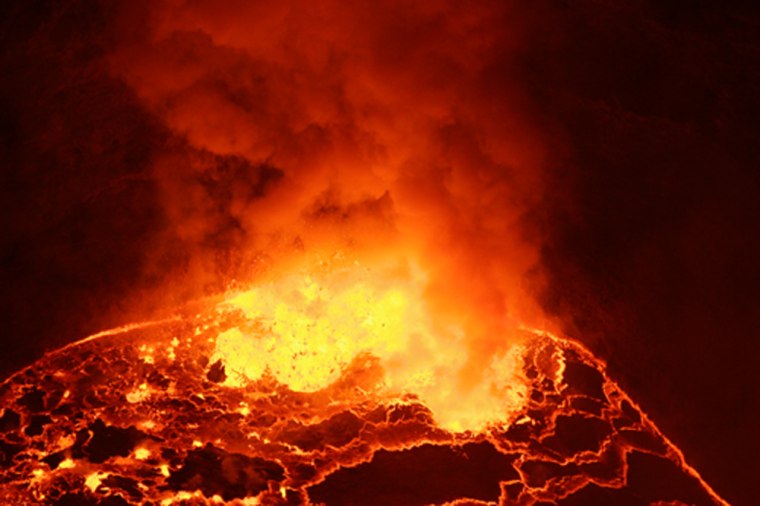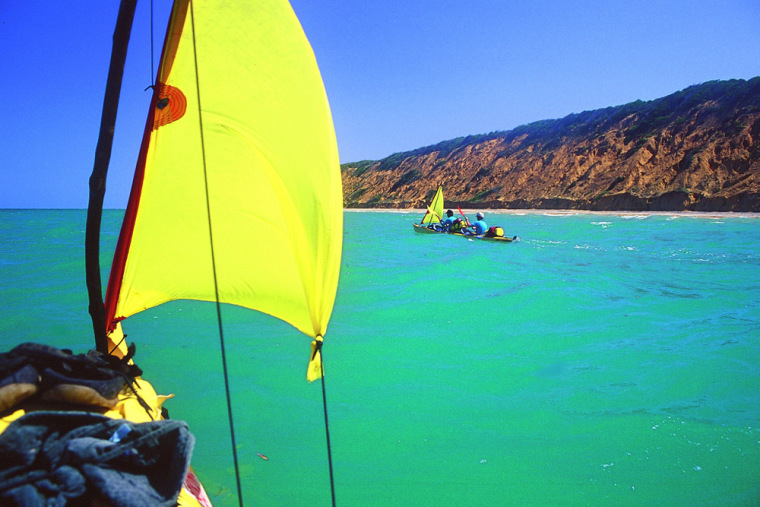By the time he reached the peak of Kilimanjaro, 19,340 feet above the cloud-covered plains below, Meljun Galvez couldn’t feel his hands or face. Physically and mentally exhausted, he had a serious case of altitude sickness. But no regrets.
“I’ve had this idea for 30 years,” says the Bay Area software sales engineer of his ascent to Africa’s highest point. “It was worth the long wait.”
The English explorer and geographer James Rennell once wrote that for “lovers of adventure and novelty, Africa is a most ample field.” Two hundred years after he charted the continent’s northern reaches, intrepid travelers are still tapping into Africa’s vast potential. Whether it’s the remote corals of the Quirimbas Archipelago in Mozambique, the steamy heights of Nyiragongo in the Democratic Republic of Congo, or the scorching sands of the Namib Desert, the continent is full of untouched pockets that could still chase the pulse of pioneers like Rennell.
For thrill-seekers like Galvez—who quit his job two years ago to travel around the world—Africa’s skyscraping summits, sprawling savannah, barren deserts and boundless skies ignite a passion for adventure. More than 20,000 trekkers each year plod along in Galvez’s footsteps to Uhuru Peak, making Kilimanjaro one of the planet’s most-climbed mountains. But today’s adventurers are constantly looking for new nerve-wracking ways to explore the continent, finding their adrenaline fixes everywhere from Cairo to Cape Town, from Tanzania to Timbuktu.
The key to adventure travel, it seems, is finding your own niche. Dana Welch, an agent for the Colorado-based Travel Society, acknowledges that planning the perfect African adventure isn’t a matter of one-size-fits-all solutions. “I really tailor-make it and get to know my clients,” she says of her trips, which have included fly-in safaris to Namibia’s remote Skeleton Coast and gorilla tracking in the game parks of Gabon.
In 2004, she helped handle the logistics for "Mystery of the Nile", an IMAX film that followed a group of explorers on their quest to travel the epic river “from the source to the sea.” But Welch is quick to point out that not all travelers want to float their way through the Sudan. (Though adventurers can raft the class IV and V rapids on the Nile in Sudan.)
For more people, adventure means getting off the beaten track—or giving the beaten track an adventurous twist. While a genteel tour of the Garden Route is at the top of many South Africa to-do lists, other travelers prefer to take the plunge—literally—with a dive in the Cape’s shark-infested waters. On the opposite end of Africa there’s artsy Essaouira, which draws a boho crowd to Morocco’s Atlantic coast; additionally, its gusting winds have given rise to a kite-surfing boom.
The growth in the adventure market makes such adrenaline-charged trips accessible to everyone. “Adventure travel used to be a Gen-X thing,” says George Deeb, CEO of iExplore.com, an award-winning adventure travel Web site. “But there’s been a psychological shift in the marketplace.”
Today’s adventure enthusiast, he notes, is likely to be older, a bit more affluent and equally at home in the boardroom or on a sandboard. Galvez, the Kilimanjaro climber, describes himself as a “youthful 40-something.” And Deeb—who gave up a successful career in investment banking to tap into the adventure market—points out that his company’s fastest-growing niche has been among baby-boomer females.

“The boomers of this generation are more active in their lifestyle,” he says. “They want to carry that active lifestyle into their travels, too. They wouldn’t be caught dead on a bus coach with 48 other people.”
Of course, that also means giving up the ease of the typical tour. In West Africa, which many experts point to as the next frontier in adventure travel, tourists who were groomed on safaris in the Serengeti or the Masai Mara aren’t going to get what Deeb calls the “smooth, East African experience.” Welch recalls a trip she planned to Gabon in 2003 that was “spam out of a can for a few days.” And on a continent where political stability is never guaranteed, simply making it from the airport to the hotel can be a challenge. The threshold for danger is higher for many Africa-bound travelers, so a great white shark dive off the coast of South Africa is just a natural progression.
Adventurous travelers are willing to brave the costs for the rewards. While Galvez calls his Kilimanjaro ascent “the most challenging physical and mental thing I’ve ever done,” reaching the top has been one of his life’s defining moments. And for others planning their own African adventure, his only advice is to “get out there and do it.”
